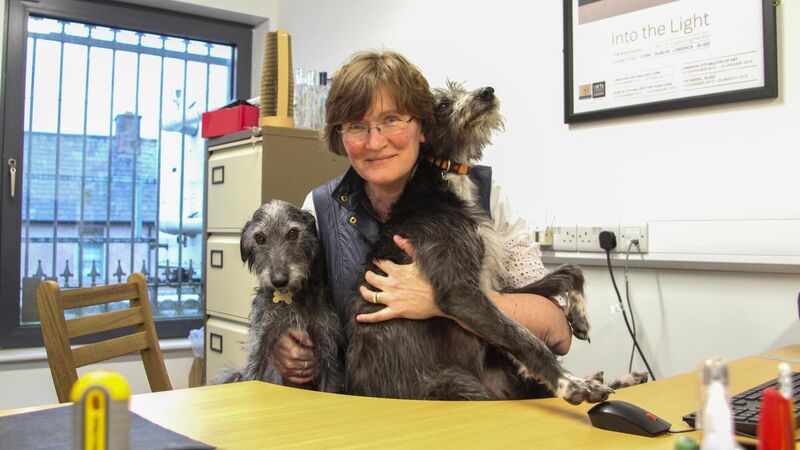Workplace Wellness: How to know if your dog is suited to a pet-friendly office life

Caroline Senior, co-owner of the Blackwater micro-distillery in Co Waterford, with Shadow and Socks
Try from €1.50 / week
SUBSCRIBE
Caroline Senior, co-owner of the Blackwater micro-distillery in Co Waterford, with Shadow and Socks
I WORKED in a language school in Paris in the early 2000s. Our office administrator used to bring her terrier to work and, mon Dieu, did that doggie receive a lot of love. Almost everyone who passed the administrator’s desk stopped to pat its head.
The couple who ran the school also brought their dog to work. Unlike the terrier, this dog was massive. He was an oversexed Newfoundland who would rear up on his hind legs and lunge at every woman who crossed his path. The couple would laugh it off, but from personal experience, I can attest that the women did not find it funny.
Already a subscriber? Sign in
You have reached your article limit.
Annual €130 €80
Best value
Monthly €12€6 / month
Introductory offers for new customers. Annual billed once for first year. Renews at €130. Monthly initial discount (first 3 months) billed monthly, then €12 a month. Ts&Cs apply.
CONNECT WITH US TODAY
Be the first to know the latest news and updates
Newsletter
The best food, health, entertainment and lifestyle content from the Irish Examiner, direct to your inbox.
Newsletter
The best food, health, entertainment and lifestyle content from the Irish Examiner, direct to your inbox.

Our team of experts are on hand to offer advice and answer your questions here
© Examiner Echo Group Limited